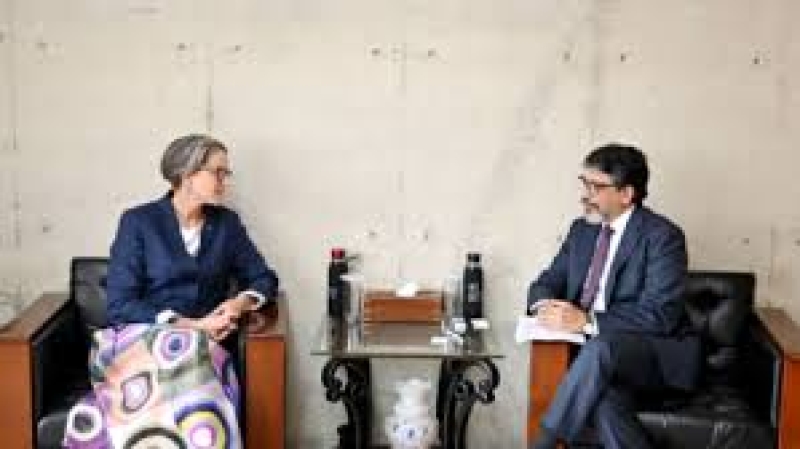- Power generation at Payra Thermal Power Plant 1st unit starts after a month |
- Irregularities, injustice will no longer be accepted in politics: Jamaat Ameer |
- 2 arrested in Jhenaidah for allegedly selling madrasa student |
- Koko’s wife campaigns for Tarique in Dhaka-17 |
- Bangladeshi Expats Cast 4.58 Lakh Postal Votes |
Dhaka Urges Quick Global Action on Climate Financing

Foreign Secretary Md Jashim Uddin has called on global partners to take swift, practical action on climate financing, as well as adaptation and mitigation efforts. His appeal came during a courtesy meeting with Australia's Ambassador for Climate Change, Kristin Tilley, at the Foreign Ministry on Wednesday, according to a ministry press release.
During the meeting, Uddin expressed Bangladesh's gratitude for its strong bilateral relations with Australia, grounded in shared values and mutual interests. The discussions largely focused on the critical challenges posed by climate change.
The Foreign Secretary emphasized the need for urgent global action, particularly from Australia, to support climate financing and technology transfer to Bangladesh. He also called for cooperation on green technology and expanding renewable energy.
Uddin highlighted that while Bangladesh is one of the least emitters of CO2 and CFCs (contributing just 0.48% of global emissions), it remains one of the most climate-affected nations. He reaffirmed Bangladesh’s commitment to a NetZero future, aligned with the country's Three Zero Theory, and urged major emitters to fulfill their responsibilities in multilateral, regional, and bilateral forums.
He also raised the issue of the repatriation of forcibly displaced Myanmar nationals (Rohingyas), noting their environmental impact in Bangladesh, particularly in the Cox's Bazar and Teknaf regions, due to deforestation and environmental degradation.
Ambassador Tilley acknowledged Bangladesh's efforts and investments in climate adaptation and mitigation, praising the country as a credible and influential voice in global climate negotiations. She shared Australia's commitment to transitioning to renewable energy, with 43% of its energy mix coming from renewables, aiming to increase this to 83% by 2030 through solar and wind power.
The meeting concluded with both sides committing to deepening cooperation on climate action.

